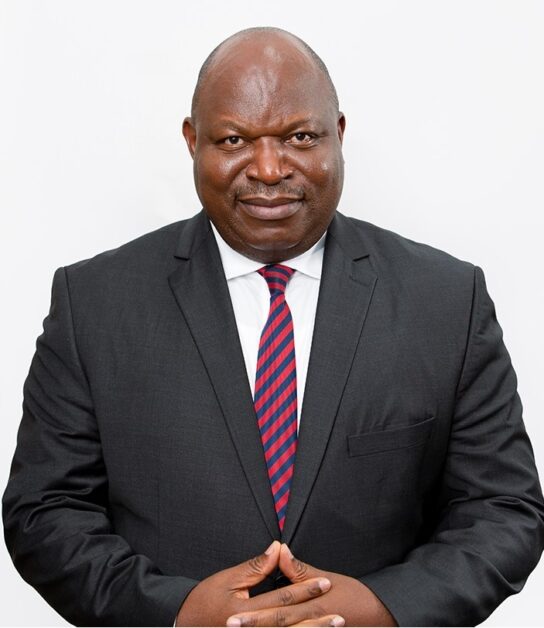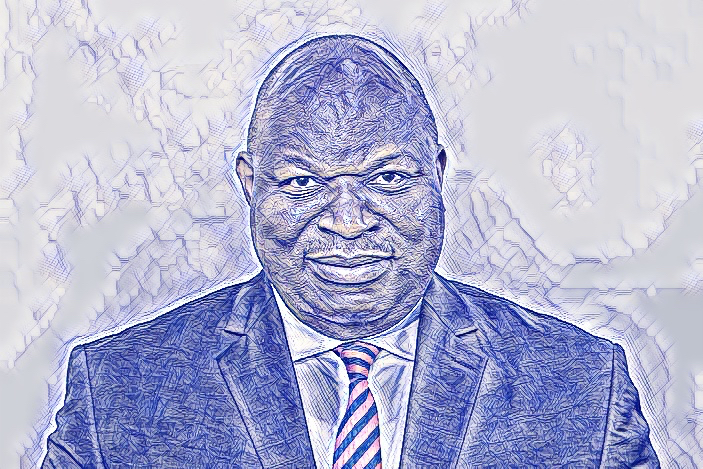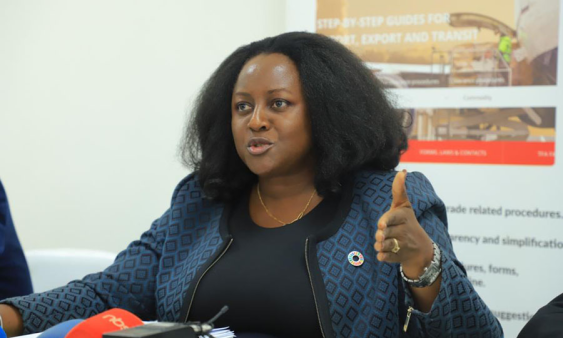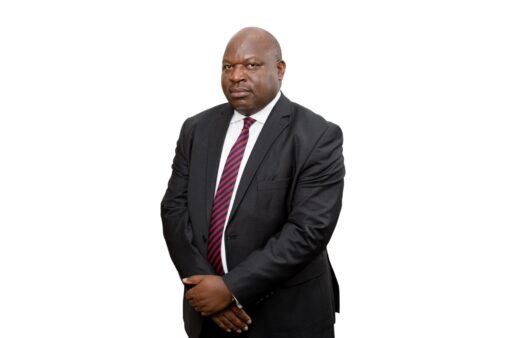The role of the CFO is fast-evolving to that of a Chief Value Officer (CVO). What unique challenges and opportunities does this present in the context of a central bank?
The CFO role in a central Bank is a very diverse one. It goes beyond being an ordinary CFO. The team you lead is also very diverse and half of the team are not actually finance professionals. For instance, the CFO heads the Agricultural Credit Facility (ACF) and other schemes which have nothing to do with accounting and the staff are agricultural financing specialists.
You also lead the National Payments Department that regulates and licenses fintechs in addition to maintaining and operating National Payment Systems like RTGS. All these roles are in addition to the ordinary CFO role of leading the Accounts Department. These make the role extremely busy, dynamic and requires a very dynamic person.
Central banks often have unique financial and regulatory responsibilities. How do you see these responsibilities influencing the transformation of the CFO role towards that of a Chief Value Officer?
As CFO in a regulatory environment, you cannot run away from regulatory-related issues. You are the centre of decisions such as: do we liquidate or not, do we automate or not; of course alongside other players like the Legal Counsel and the Head of IT. Some of these decisions or mistakes made can have very long-term implications for the Bank and the country. They also sometimes influence the future legal structure of the country.
As a CFO at BOU, I am delegated to the trusteeship of the Defined Contribution Schemes Board, and alternate chair of the investments sub-committee committee of the Bank to mention but a few. All these roles bring very great value to the Bank but are outside the ordinary CFO role. All these additions complicate the CFO role further and make it harder to perform. It is easier to fail than in the past if the person is not very up to speed.
Can you share specific examples of how technology and digitalisation have impacted financial leadership and decision-making at the Bank of Uganda? How has this influenced your role as CFO?
At the Central Bank, we take technology to be very important because it comes with very changing risks. However, I must also confess that technology has exerted pressure on the budgets of CFOs. Of course, you can’t be happy about this if you are looking at your bottom line in the financials. Unfortunately, sometimes the effects of investments in technology may take a long to be felt. Remember the amortisation of these systems immediately hits your income statement the day you start using the system. Amortisation will not consider system glitches, learning curve effects on staff etc.
Given the specialised nature of a central bank, what skills and competencies do you believe are particularly crucial for a CFO in this environment to transition into a Chief Value Officer?
As CFO, you must be able to take the lead in strategic transformation. Everything done must speak to strategy. You just cannot finance any innovation that does not directly speak to the strategic objectives of the institution. You must be willing to learn what everyone has failed to learn. It is very common of recently to see CEOs or Accounting Officers delegating a lot of their work or roles to CFOs. Whatever they find complex will be delegated to CFOs to take the lead. This is why you CFOs lead very many committees of management and ad hoc committees. Of course, this complicates the role further and exposes the persons to higher risks if they are not very good and fast learners. So, in brief, here are the key skills:
- Financial Expertise
- Leadership
- Strategic planning
- Business intelligence
- Risk assessment
- Cross-functional knowledge of the business.

In your experience, how has the relationship between finance and other departments within the Bank of Uganda evolved, and how has this affected your role in driving value across the organisation?
The relationship between finance and other departments is usually a support role. But this has evolved. In the past, other departments used to come to finance to request for money when projects were approved. Which was at the tail end of project planning and approval. So, we were back benchers. The CFO is now at the forefront of everything. Today, the departments have to request for advice on buy and hire, business plan development, tax implications of projects etc. So, there is a substantial advisory role that the CFO must continuously play. Finance is now required to take part right from feasibility studies, due diligence, and prototype development until the very end. This gets the CFO highly involved in almost everything happening in the institution from start to end. That doesn’t make the role any easier or less busy. It has also made us unpopular when we advise against some of these projects since we now have full information.
Central banks often play a critical role in economic stability and monetary policy. How does this influence your approach to financial leadership, and how do you balance the traditional responsibilities of a CFO with the evolving expectations of a CVO?
At the Bank, the CFO leads more than one department. As earlier stated, accounts is just one spectrum and the rest are not accounts related. If you are not careful, it is easy to forget either accounts or concentrate on accounts and forget about the rest of the departments. So, the CFO must be very organised, and have a very organised leadership below you at the department level so that you can easily delegate and get work done. Leadership skills here will play a critical role.
When we talk about economic stability and monetary policy all these roles come with financing implications. Policy formulations and interventions are quite costly and have a very big effect on the financial performance, and bottom-line figures whether at the institutional level or country level. Therefore, CFOs must be involved if they are to provide guidance and advice to our colleagues in monetary policy formulation.
Could you provide examples of successful initiatives or projects where you, as CFO, have played a pivotal role in creating value for the Bank of Uganda and the broader financial ecosystem?
My finance team was instrumental in the Development of National Payment Systems both for retail and wholesale systems. This included the implementation of the National Payment Systems Act, 2020 and the National Payment System Regulations 2021. A key aspect of the implementation is the regulatory sandbox which created an avenue to test payment innovations. This framework has been key in supporting innovations in the digital payments ecosystem by providing an environment for innovators to test their solutions under regulatory oversight.
New products such as QR code-initiated payments have been launched onto the market following successful testing under the regulatory sandbox. The team also oversaw the implementation of the National Payment Systems Consumer Protection Regulations, 2022 which have become a cornerstone of the Bank of Uganda’s strategy against digital fraud and cyber security threats.
To deal with the other threats such as limited interoperability and high transaction charges, the team launched the national switch project which is currently in the evaluation stage. The national switch whose anticipated benefits include transaction processing efficiencies and cost reduction arising from shared centralized infrastructure that will be interoperable for all bank and non-bank payment systems, whether retail or wholesale. The team has also been at the forefront of promoting financial inclusion in Uganda through the implementation of the National Financial Inclusion Strategy 2017/22. The end-term evaluation of the strategy noted that financial inclusion had continued to grow in Uganda with both access points and usage rising considerably.
As of July 31, 2023, twenty-seven (27) institutions had been licensed as payment service providers and payment system operators. These entities have rolled out several digital payment solutions in several sectors such as public transport, education, and health. Other products include savings, investments, and micro-insurance which are transformative innovations that leverage technology which has increased the ease, speed and convenience at which transactions are executed. These developments are in line with the national efforts towards social economic transformation as we aim to bring the masses into the monetary economy.

Enhancing Financial Inclusion under the ACF. The ACF has significantly increased access to finance by the micro, small and medium enterprises (MSMEs) with 80 per cent of the beneficiaries belonging to MSMEs (loans amounts not exceeding 100 million). Without ACF, the bulk of the micro and small enterprises that are rural and lack the collateral that banks demand, including tangible collateral, would remain constrained in accessing finance. The innovation of Block Allocation, which was introduced under ACF in 2018, allows micro borrowers access financing of up to UGX 20 million using alternative collateral options such as chattel mortgages, cashflows and character or credit history of the borrower among others. By June 30, 2023, the ACF had advanced UGX 13.50 billion to 2,113 (61 per cent of the total funded projects under ACF) with 29 per cent of those being female-owned projects. Block Allocation, therefore, has the potential to broaden economic inclusion.
We have also developed an in-house system (ACS) to help in the analysis and disbursement of ACF Loans. This will reduce the turnaround time of loan disbursement. We have implemented the Budget preparation and monitoring tool. This has also improved our financial process.
Given the unique regulatory environment of a Central Bank, what are some of the specific challenges you face in adapting to the evolving role of a Chief Value Officer, and how do you address them?
As a regulator you must be ready to cope faster than the people you regulate otherwise you will not be able to regulate them. As a CFO, you must ensure that the finance processes are efficient and adaptive to new changes in the system. For instance, around when IFRS 9 became operational, Banks had to move very fast to adopt it. The finance team had to move faster, take the lead, and also provide support to the supervision team. The key challenge here is that this comes with costs and sometimes these costs are hard to forecast. You will realise today, that as a CFO, you will need a much bigger budget to run even your own department. But this is a competing priority given that we are always expected to control costs both in the short term and long term.
There is an increasing challenge in finding the people with the right mix of skills required of finance professionals today. With the globalisation of the economy, many of the good staff are leaving the country for greener pastures. With most central Banks investing their reserves outside the country and expecting high returns with low risks, CFOs are now expected to provide a lot of advisory on taxation, and forex exposures among others. Again, these are very specific requirements that need one to be highly competent and quick to learn.
How do you see the future of financial leadership evolving within central banks, and what implications does this have for professionals in similar roles across the globe?
In future, this role might require professional bodies and training institutions to rethink their training programs for the CFOs. As accountants, we are required to be strong in different areas of finance since the role now involves a lot of investment decisions, strategic decisions, tax planning, leadership, governance, and the ability to know the different sides of the business. In central Banks, one must be highly knowledgeable in the core areas of supervision, currency, and monetary policy. CFOs may be required to have more than just accounting experience since it is now clear that accounting is not even half of the work we do. What we called accounting in the past is now being done by software. According to the 2021 Report published by the ACCA on the role of finance professionals in business recovery and sustainability, predicted the future finance professional will require the following skills: business acumen, risk management, tax management, performance management, corporate and business reporting, planning and project management, leadership, determination, engagement, and stakeholder focus to mention but a few.
We are now already in the future. The CFO role will be looked at as a transformational driver and business analyst who creates value, protects value and reports value.

 Letters to My Younger Self: Robinah Siima — “Success Is Quieter, But Richer”
Letters to My Younger Self: Robinah Siima — “Success Is Quieter, But Richer”


